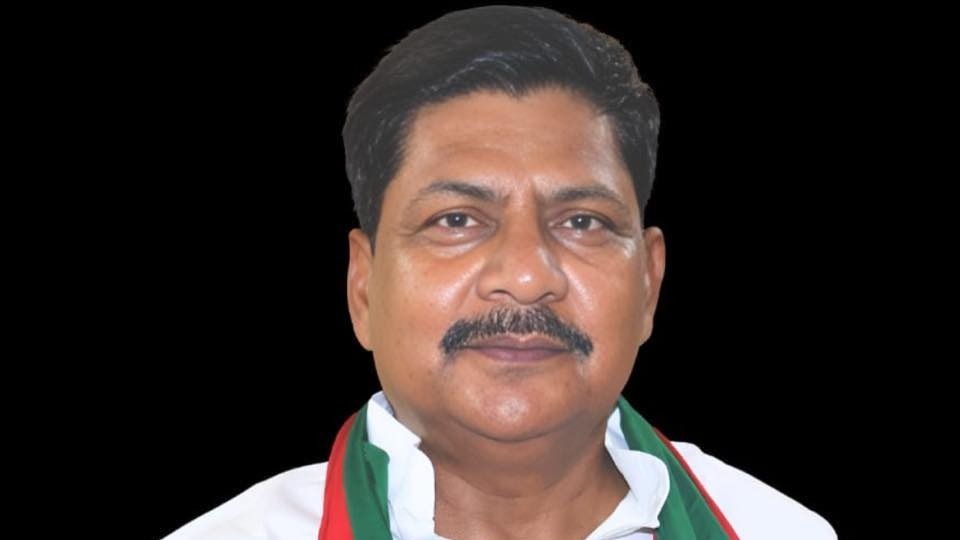Title: Unveiling the Controversy: MP Returns Gifts from Indian Railways
Communist Party of India (Marxist-Leninist) Liberation MP, Sudama Prasad, has recently stirred up a storm by deciding to return gifts received during a Parliamentary committee’s visit to South India. Let’s dive into the details of this intriguing controversy that has caught everyone’s attention.
The Story So Far:
During a visit to Bangalore, Tirupati, and Hyderabad, the members of the Parliamentary Standing Committee on Railways were greeted with gifts from RITES and Rail Vikas Nigam Limited. Among them, Sudama Prasad received a 1-gram gold coin and a 100-gram silver block. However, his reaction to these gifts has sparked a debate on ethics and morality within the Indian Railways.
Full Review:
The Controversy Unveiled:
In a letter addressed to the committee’s Chairperson, CM Ramesh, MP Sudama Prasad expressed his disappointment and decision to return the gifts. He questioned the ethics behind such gestures, stating that they might be an attempt to silence MPs from raising crucial issues affecting the public.
Ethical Concerns or Hospitality Gesture?
While Prasad deemed the gifts unethical, sources within the committee revealed that they were intended as gestures of warmth and hospitality. The gifts, including flowers, shawls, paintings, and memorabilia, were meant to convey a sense of welcome and appreciation.
A Stand Against Corruption:
Prasad’s bold move to return the gold and silver gifts in front of the committee members signifies his stance against corruption and the need for transparency in governance. His actions have shed light on the fine line between hospitality and ethical conduct in such official interactions.
Conclusion:
In the midst of this controversy, MP Sudama Prasad’s decision to return the gifts has ignited a conversation on ethics, transparency, and the responsibilities of public officials. It serves as a reminder of the importance of upholding moral standards in all interactions, especially in matters concerning public welfare.
Frequently Asked Questions:
1. Why did MP Sudama Prasad decide to return the gifts?
Sudama Prasad returned the gifts to highlight ethical concerns and prevent any perception of corruption or influence.
2. Were the gifts given by Indian Railways intended as gestures of hospitality?
Yes, sources within the committee confirmed that the gifts were meant to convey warmth and appreciation.
3. Did any other committee members follow suit in returning the gifts?
As of now, no other members have commented on the issue or returned their gifts.
4. What impact does this controversy have on the Indian Railways management?
The controversy highlights the need for the Indian Railways management to reevaluate their practices concerning gifts and accommodations for official engagements.
5. How has the public reacted to MP Sudama Prasad’s actions?
Public reactions have been mixed, with some supporting Prasad’s stand against corruption while others questioning the significance of returning the gifts.
6. What steps can be taken to ensure transparency in such interactions in the future?
Implementing clear guidelines on gift-giving, promoting transparency, and upholding ethical standards can help prevent similar controversies in the future.
7. What message does MP Sudama Prasad’s action send to other public officials?
Prasad’s action serves as a reminder for public officials to uphold moral standards, prioritize transparency, and act in the best interest of the public.
8. How can such controversies impact public perception of government officials?
Controversies like these can influence public trust in government officials and highlight the need for accountability and ethical conduct.
9. What role does public morality play in interactions between officials and stakeholders?
Public morality is crucial in maintaining trust and integrity in governance, ensuring that decisions are made in the best interest of the public.
10. What broader implications does this controversy have for the political landscape in India?
This controversy sheds light on the need for ethical conduct, transparency, and accountability in political interactions, setting a precedent for future engagements.
Tags: Indian Railways, Parliamentary Committee, Sudama Prasad, Ethics, Transparency, Corruption, Hospitality, Public Welfare

